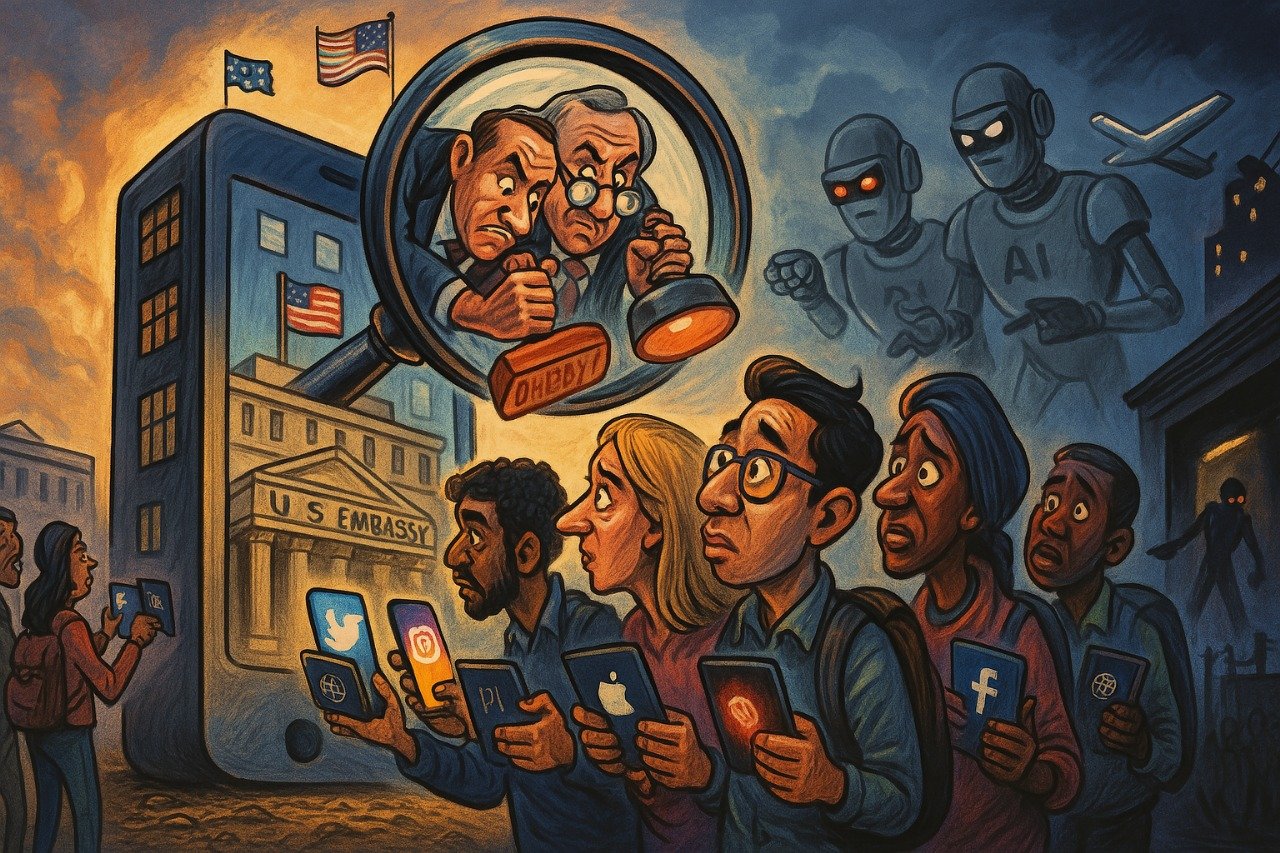According to a cable dated March 25, Secretary of State Marco Rubio has directed American embassies and consulates to screen visa applicants—especially those applying for F, M, and J categories—based on their social media presence. The instruction mandates consular officers to flag applicants whose online activity suggests hostility toward the United States or its allies, including Israel.
The move reportedly stems from an effort to curb anti-American sentiments and perceived national security threats. Visa applications that fall within a specific timeframe—from October 7, 2023, to August 31, 2024—will face additional scrutiny. Diplomats are expected to refer such cases to the embassy’s “fraud prevention unit” for mandatory social media analysis.
Palestinian Sympathy = Visa Risk?
The directive allegedly singles out international students who may have expressed support for Palestinians amid the ongoing Middle East conflict. Posts deemed to display “a hostile attitude toward U.S. culture, institutions, or founding principles” could now result in immediate denial of entry, regardless of academic or professional merit.
ALSO READ: Call for Cyber Experts: Join FCRF Academy as Trainers and Course Creators
Critics argue this sets a dangerous precedent. “We’re now judging applicants by their tweets rather than their transcripts,” said one immigration attorney. Civil liberties advocates fear this could become a backdoor digital loyalty test—one that penalizes dissent and curtails open political discourse.
AI and Algorithms in Embassy Decisions
A spokesperson from the State Department reportedly confirmed the use of “all available technology” to aid the visa screening process. This includes artificial intelligence to scan massive troves of data from Facebook, Twitter (now X), Instagram, and other platforms. While not officially confirmed, experts believe AI-driven sentiment analysis tools are already being used to flag keywords and affiliations.
This raises further questions: Who sets the algorithmic boundaries? How are appeals processed? And could such surveillance extend beyond visa applicants to U.S. green card holders and citizens abroad?
As news of the directive spreads, universities and human rights groups alike are urging greater transparency in how consular decisions are made and advocating for protections against algorithmic bias and political targeting.


